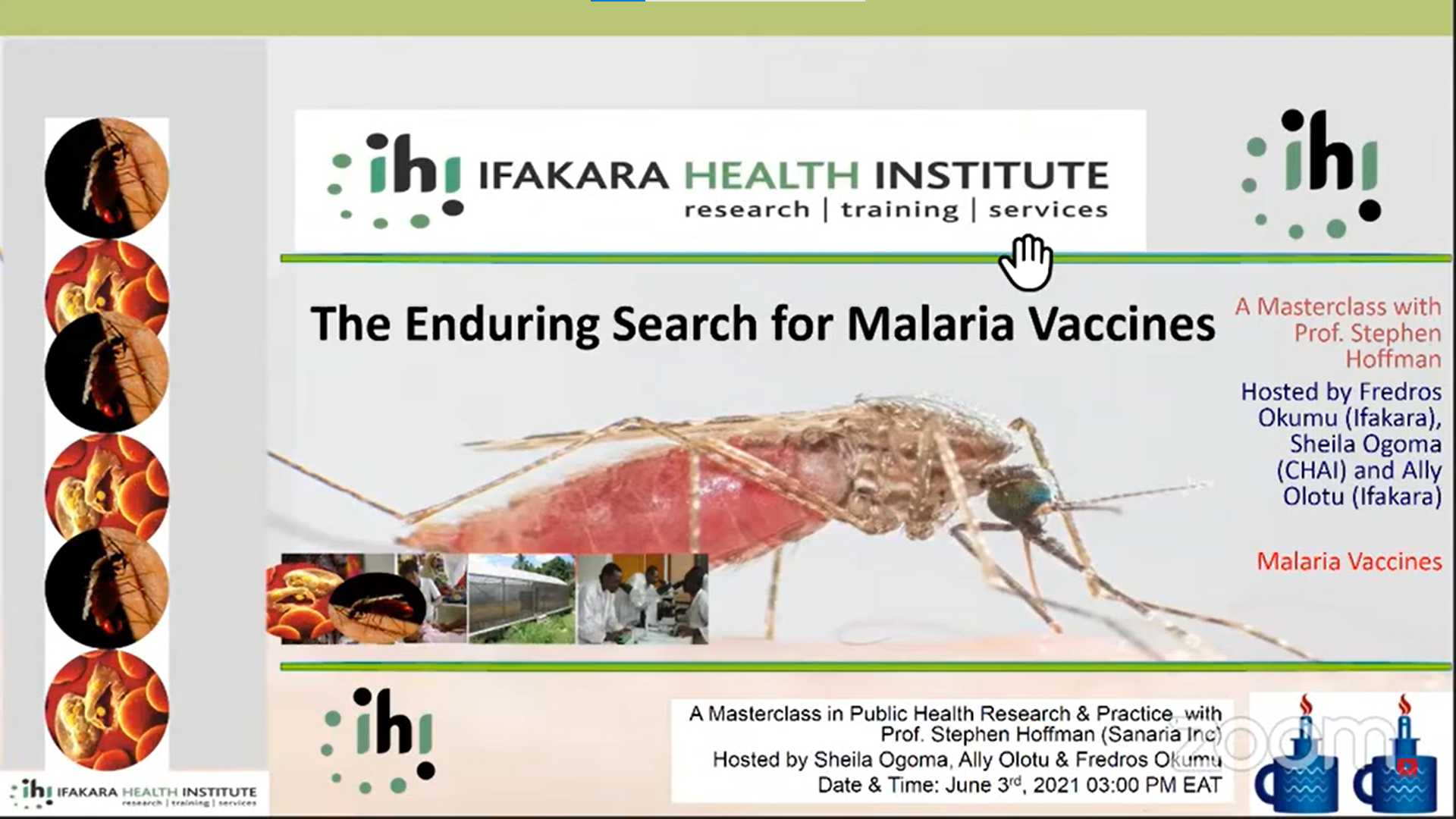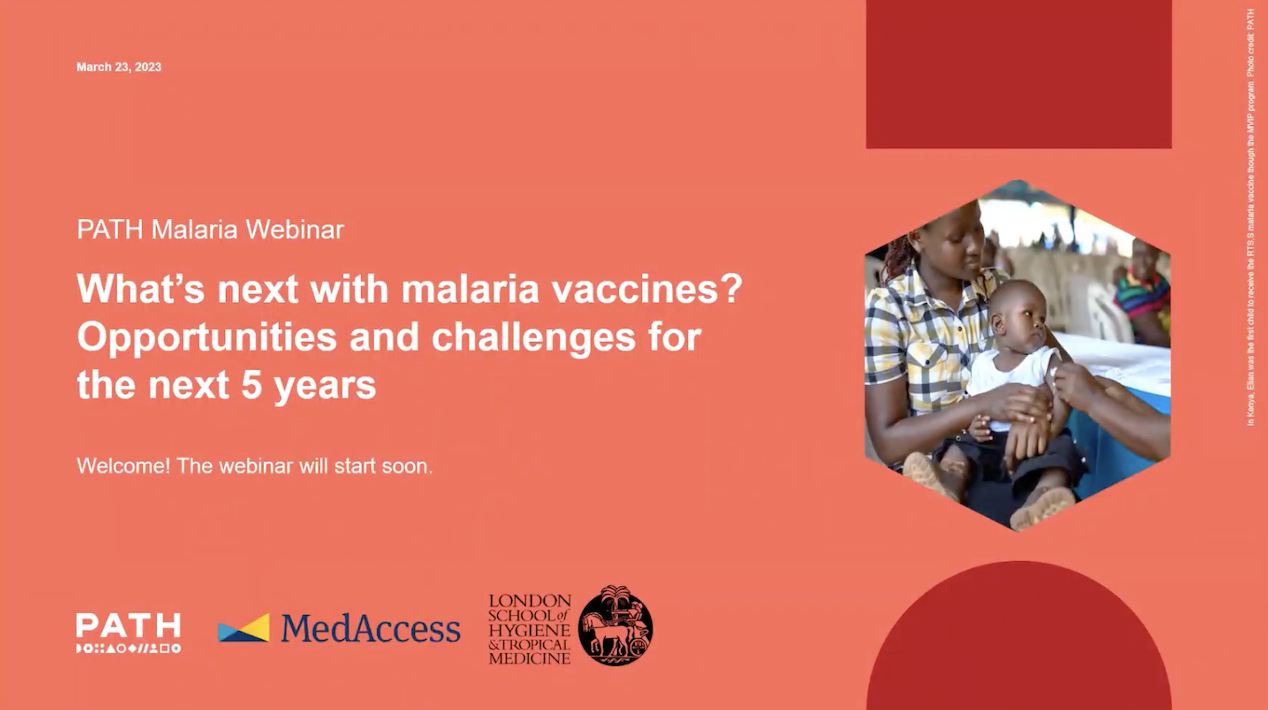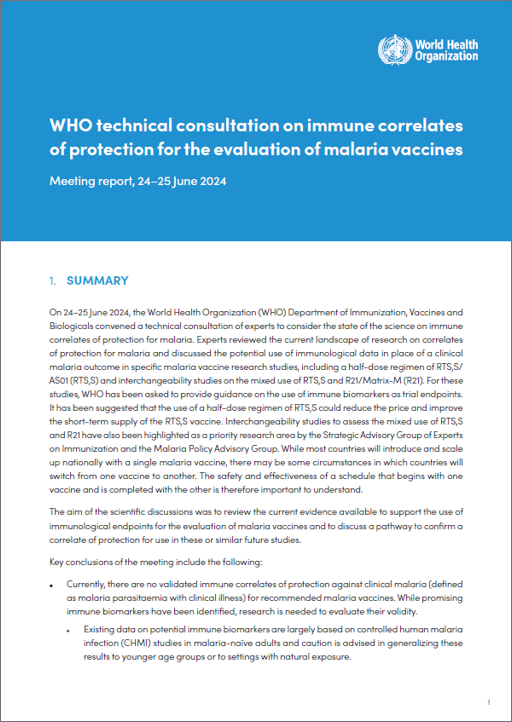Ifakara Masterclass Edition 25- The Enduring Search for Malaria Vaccines: A MasterClass with Prof. Stephen Hoffman (Sanaria Inc.)
Collaborator(s): Sanaria, United States
Published: 03/06/2021
The Enduring Search for Malaria Vaccines
The 25th edition of the masterclass hosted by Fredros Okumu from Ifakara Health Institute (IHI) and Sheila Ogoma from Clinton Health Access Initiative(CHAI) features Prof. Stephen Hoffman who has over 30 years of experience building and managing large, successful research and development programs. From 1987-2001 he was malaria program director, Naval Medical Research Center, where his team were leaders in subunit malaria vaccine development and sequencing the Plasmodium falciparum genome and published the first studies in the world showing DNA vaccines elicited killer T cells in humans.
The discourse starts off with the roles vaccines have played against infectious diseases in general and enters the evolution of malaria vaccine research and development. The journey of RTS,S vaccine and its effectiveness is highlighted which led to WHO recommending widespread use of the RTS,S/AS01 (RTS,S) malaria vaccine among children in sub-Saharan Africa and in other regions with moderate to high P. falciparum malaria transmission. The recommendation is based on results from an ongoing pilot programme in Ghana, Kenya and Malawi that has reached more than 900 000 children since 2019.
It also features an indepth review of Plasmodium falciparum sporozoite vaccines (PfSPZ). Sanaria PfSPZ Vaccine is a radiation attenuated whole organism vaccine, meaning it is a weakened form of the parasite that causes malaria. It is capable of entering liver cells, but can’t develop further to cause disease. PfSPZ Vaccine has demonstrated 92-100% vaccine efficacy (VE) against homologous (the same strain of parasite as the vaccine itself) controlled human malaria infection (CHMI) at 3-11 weeks after the last vaccine dose in the US, Germany, Tanzania, and Mali. VE against heterologous (a very divergent strain) CHMI, which more closely reproduces the heterogeneous array of parasites transmitted in nature, has been 80% at 3 weeks in the US, 78% through 9.5 weeks in Germany, and 54% at 33 weeks after last immunization in the US. In 4 different clinical trials in adults in Mali and Burkina Faso living in settings of intense natural seasonal Pf transmission and with previous exposure to malaria, VE during 6 months against naturally transmitted Pf was 47% to 57%. In Burkina Faso, VE was undiminished during a second year of transmission, demonstrating 18 months of sustained protection.
The talk focuses on capacity building, personal experiences and mentorship in vaccine development and its integrating vaccines in malaria control/elimination strategies together with formation of essential partnerships Leadership with the international PfSPZ Consortium. Also the need for exploration of new opportunities for scaling up vaccine research in malaria endemic countries.
THEMES: Leadership & Governance | Product Development | Vaccines


